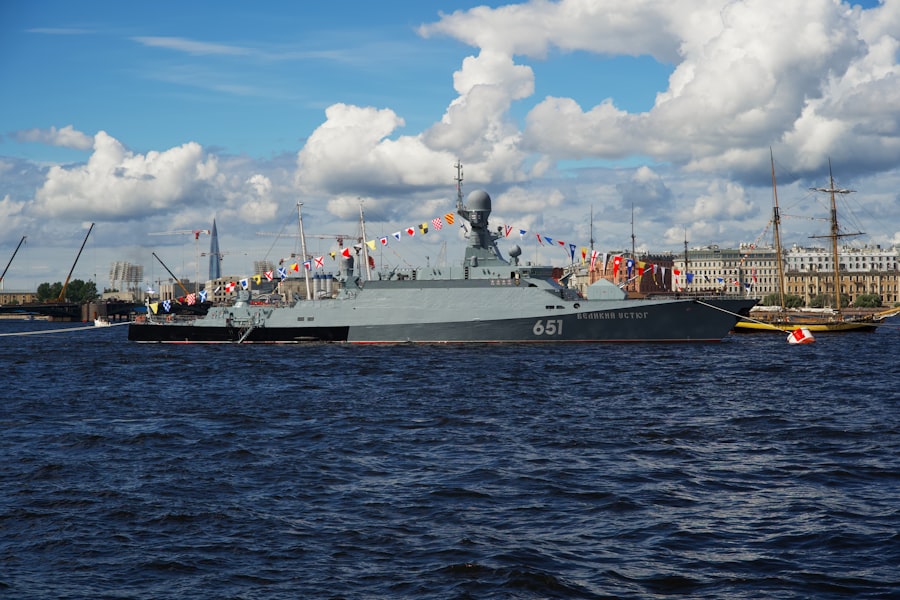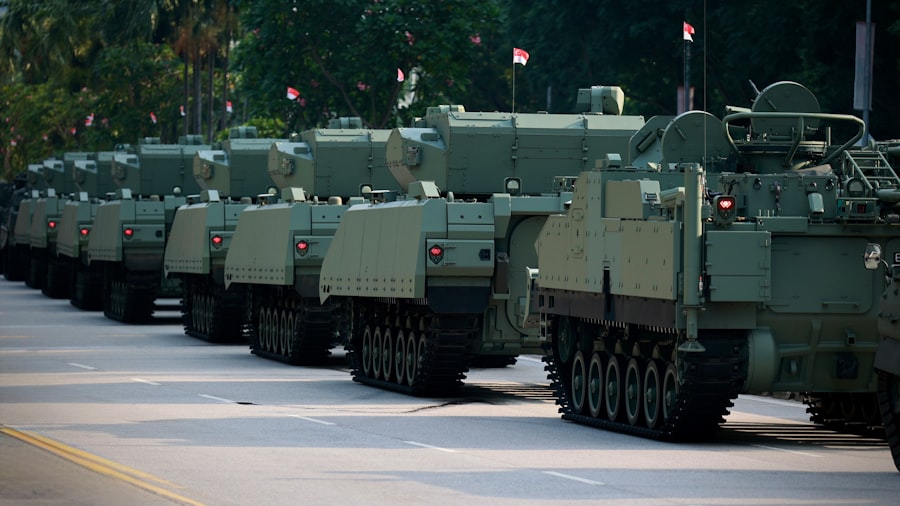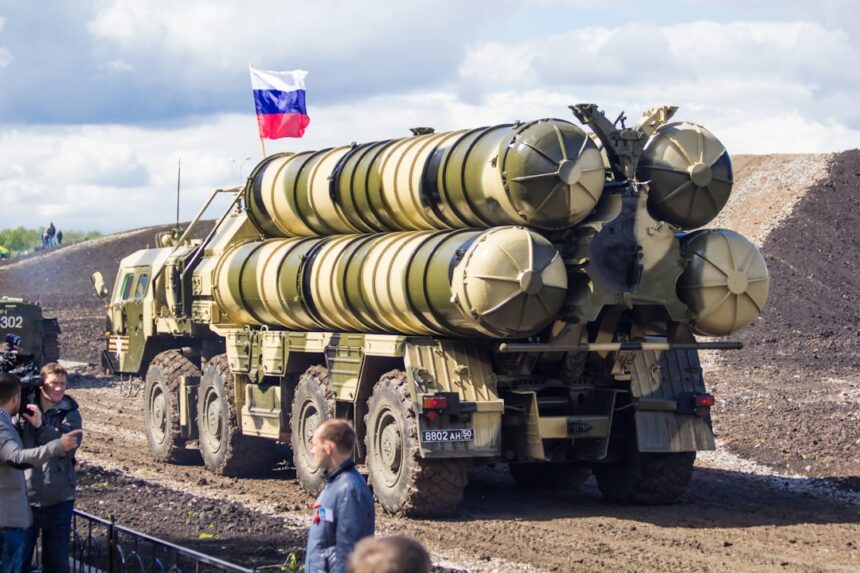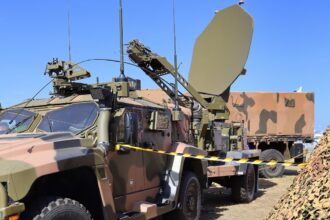In recent years, the Russian military has embarked on an ambitious journey of modernization, aiming to enhance its capabilities and assert its influence on the global stage. This initiative is not merely a response to external threats but also a reflection of Russia’s desire to project power and maintain its status as a formidable player in international affairs. The modernization efforts encompass a wide range of areas, including technological advancements, strategic planning, and the restructuring of military forces.
However, these efforts are fraught with challenges that stem from economic constraints, outdated equipment, and systemic inefficiencies. The complexity of military modernization in Russia is underscored by the interplay of various factors that influence its success. While the Kremlin has articulated a vision for a modernized military capable of addressing contemporary security challenges, the reality on the ground reveals significant obstacles.
Understanding these challenges is crucial for comprehending the broader implications for Russia’s defense capabilities and its role in global geopolitics.
Key Takeaways
- Russian military modernization efforts are facing budget constraints and economic challenges.
- The lack of technological innovation and reliance on outdated equipment is a major concern for the Russian military.
- Inefficiencies in procurement and production processes are hindering the modernization efforts of the Russian military.
- Shortcomings in training and readiness are impacting the overall defense capabilities of Russia.
- Corruption and mismanagement within the defense industry are posing significant challenges to the modernization efforts of the Russian military.
Budget constraints and economic challenges
One of the most pressing issues facing Russia’s military modernization efforts is budget constraints. The Russian economy has been grappling with stagnation, exacerbated by international sanctions and fluctuating oil prices. As a result, the defense budget has faced significant limitations, forcing military planners to prioritize certain projects over others.
This financial reality has led to difficult decisions regarding which programs to advance and which to delay or abandon altogether. Moreover, the economic challenges extend beyond mere budgetary constraints. The Russian economy’s heavy reliance on energy exports makes it vulnerable to external shocks, which can further impact defense spending.
As the government seeks to balance social needs with military ambitions, the allocation of resources becomes a contentious issue. The struggle to secure adequate funding for modernization initiatives poses a significant hurdle that could undermine the effectiveness of Russia’s military reforms.
Lack of technological innovation and reliance on outdated equipment

Another critical challenge in Russia’s military modernization is its reliance on outdated equipment and a lack of technological innovation. Despite efforts to develop new systems and platforms, many components of the Russian military arsenal remain rooted in Soviet-era designs. This reliance on legacy systems hampers operational effectiveness and limits the military’s ability to adapt to modern warfare’s demands.
The technological gap between Russia and its potential adversaries is becoming increasingly apparent. While countries like the United States and China invest heavily in cutting-edge technologies such as artificial intelligence, cyber warfare capabilities, and advanced missile systems, Russia struggles to keep pace.
Inefficiencies in procurement and production processes
| Category | Metric | Value |
|---|---|---|
| Procurement | Supplier lead time | 10 days |
| Procurement | Inventory turnover | 5 times/year |
| Production | Machine downtime | 15% |
| Production | Defect rate | 3% |
Inefficiencies in procurement and production processes further complicate Russia’s military modernization efforts. The defense industry has long been plagued by bureaucratic hurdles, corruption, and mismanagement, leading to delays in the delivery of critical equipment and systems. These inefficiencies can result in cost overruns and subpar quality, undermining the very goals of modernization.
Additionally, the fragmented nature of the defense industry means that different branches of the military may not effectively coordinate their needs, leading to duplication of efforts and wasted resources. Addressing these inefficiencies is essential for ensuring that modernization initiatives translate into tangible improvements in military capabilities.
Shortcomings in training and readiness
Training and readiness are fundamental components of any effective military force, yet Russia faces significant shortcomings in these areas. Despite investments in new equipment, there are concerns about the ability of personnel to operate advanced systems effectively. Training programs may not adequately prepare soldiers for the complexities of modern warfare, particularly in joint operations that require coordination across different branches of the military.
Moreover, the emphasis on quantity over quality in personnel recruitment can lead to a lack of experienced and skilled soldiers. The rapid expansion of military forces may result in a dilution of training standards, ultimately impacting operational readiness. As Russia seeks to modernize its military, addressing these training deficiencies will be crucial for ensuring that personnel can effectively utilize new technologies and strategies.
Corruption and mismanagement within the defense industry

Corruption and mismanagement within Russia’s defense industry represent significant barriers to successful military modernization. Reports of graft and inefficiency have plagued defense contracts for years, leading to skepticism about the integrity of procurement processes. This corruption not only diverts funds away from essential projects but also undermines public trust in the government’s ability to manage defense resources effectively.
The consequences of corruption extend beyond financial losses; they can also impact operational effectiveness. When contracts are awarded based on favoritism rather than merit, it can result in substandard equipment being produced or delivered late. This mismanagement ultimately hampers the military’s ability to modernize effectively and maintain a competitive edge over potential adversaries.
Impact of international sanctions on military modernization
International sanctions have had a profound impact on Russia’s military modernization efforts. Following its annexation of Crimea in 2014, Western nations imposed a series of economic sanctions aimed at curtailing Russia’s access to critical technologies and financial markets. These sanctions have hindered Russia’s ability to procure advanced components necessary for modernizing its military capabilities.
The restrictions on technology transfer have forced Russia to rely more heavily on domestic production, which may not always meet the required standards for quality and innovation. As a result, some modernization programs have been delayed or scaled back due to a lack of access to essential technologies. The long-term implications of these sanctions could stifle Russia’s ability to keep pace with global advancements in military technology.
Geopolitical considerations and strategic priorities
Geopolitical considerations play a crucial role in shaping Russia’s military modernization priorities. The Kremlin views its military as a key instrument for asserting influence in regional conflicts and countering perceived threats from NATO and other Western powers. As such, modernization efforts are often aligned with strategic objectives that prioritize deterrence and power projection.
However, these geopolitical ambitions must be balanced against domestic challenges and resource limitations. The need to address security concerns in regions such as Eastern Europe and the Arctic may drive certain modernization initiatives, but it can also strain resources that could be allocated elsewhere. The interplay between geopolitical aspirations and practical constraints will continue to shape Russia’s approach to military modernization.
Implications for Russia’s defense capabilities and national security
The challenges facing Russia’s military modernization have significant implications for its defense capabilities and national security. While the Kremlin seeks to project strength through modernization initiatives, the underlying issues—such as budget constraints, technological gaps, and corruption—could undermine these efforts. A military that is unable to adapt effectively to modern threats may find itself at a disadvantage in future conflicts.
Furthermore, as Russia navigates its modernization journey amid economic challenges and international isolation, its ability to respond to emerging security threats may be compromised. The potential for operational shortcomings could embolden adversaries or lead to miscalculations in regional conflicts, ultimately impacting global stability.
Potential consequences for regional and global stability
The implications of Russia’s military modernization efforts extend beyond its borders, with potential consequences for regional and global stability. As Russia seeks to enhance its military capabilities, neighboring countries may respond by bolstering their own defenses or forming alliances aimed at countering perceived threats. This arms race could escalate tensions in regions such as Eastern Europe or the Arctic, where competing interests intersect.
Moreover, Russia’s assertive posture may provoke reactions from NATO and other Western powers, leading to increased militarization along borders and heightened risks of conflict. The interplay between Russia’s modernization efforts and international responses could create a volatile security environment that poses challenges not only for regional actors but also for global peace.
The way forward for Russian military modernization efforts
In conclusion, while Russia’s military modernization efforts reflect an ambition to enhance its defense capabilities and assert its influence on the global stage, they are beset by numerous challenges that must be addressed for success. Budget constraints, technological gaps, inefficiencies in procurement processes, training deficiencies, corruption, and international sanctions all pose significant hurdles that could undermine these initiatives. Moving forward, it will be essential for Russian leadership to adopt a comprehensive approach that prioritizes transparency, efficiency, and innovation within the defense sector.
By addressing these systemic issues and fostering collaboration between civilian industries and the military, Russia may improve its chances of achieving meaningful modernization outcomes. Ultimately, how effectively Russia navigates these challenges will determine not only its own national security but also its role in shaping regional and global stability in an increasingly complex geopolitical landscape.
The failure of Russian military modernization has been a topic of significant concern and analysis, particularly in light of recent geopolitical tensions. An insightful article that delves into the intricacies of this issue can be found on the website “In The War Room.” This piece explores the various challenges and setbacks faced by the Russian military in its efforts to modernize its forces, including technological, logistical, and strategic hurdles. For a more comprehensive understanding of these dynamics, you can read the related article by visiting In The War Room. This resource provides a detailed examination of the factors contributing to the current state of the Russian military and offers perspectives on potential future developments.
WATCH NOW! 🎖️ Plot Twist: Russia’s Military Is Being Eaten Alive By Its Own Corruption
FAQs
What is the current status of Russian military modernization?
As of 2021, Russian military modernization efforts have faced significant challenges and setbacks, leading to delays and shortcomings in the development and deployment of new military technologies and equipment.
What are some of the key areas where Russian military modernization has failed?
Russian military modernization has faced failures in areas such as the development of advanced fighter jets, naval vessels, and missile defense systems. Additionally, issues with procurement, corruption, and budget constraints have hindered progress.
How has the failure of Russian military modernization impacted its military capabilities?
The failure of Russian military modernization has resulted in an aging and outdated military infrastructure, which has limited the country’s ability to effectively compete with other global military powers. This has also impacted Russia’s ability to project power and influence in various regions.
What are the reasons behind the failure of Russian military modernization?
The failure of Russian military modernization can be attributed to a combination of factors, including economic challenges, technological hurdles, bureaucratic inefficiencies, and corruption within the defense industry. Sanctions and export restrictions have also impacted Russia’s access to advanced military technologies.
What are the potential implications of the failure of Russian military modernization?
The failure of Russian military modernization could have implications for the country’s national security, defense capabilities, and geopolitical influence. It may also impact Russia’s ability to maintain a credible deterrent and defense posture in the face of evolving global security challenges.




